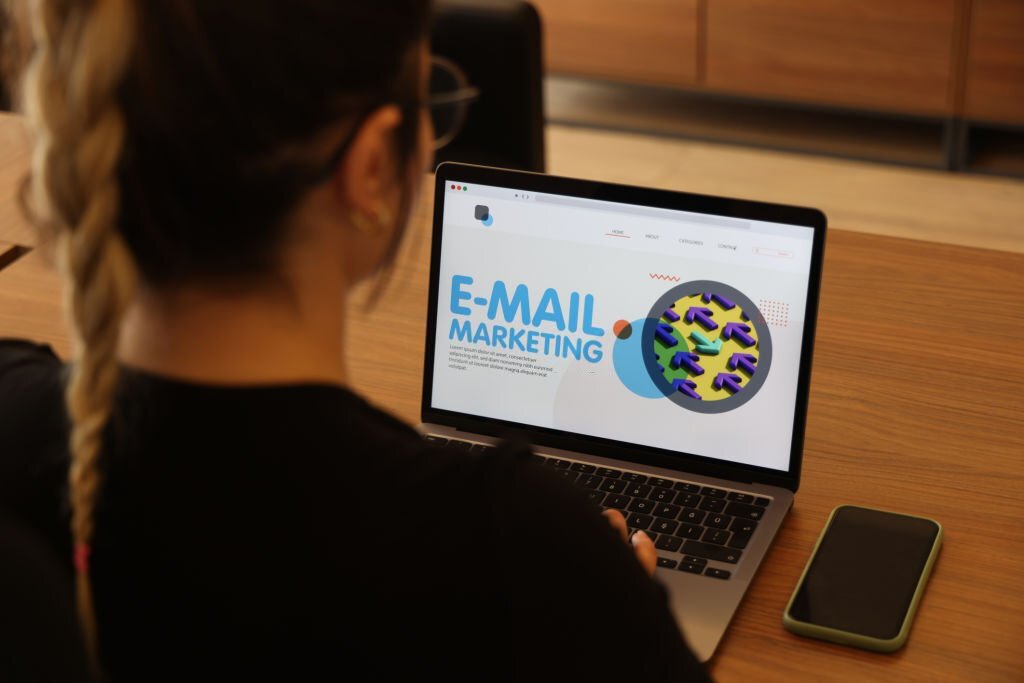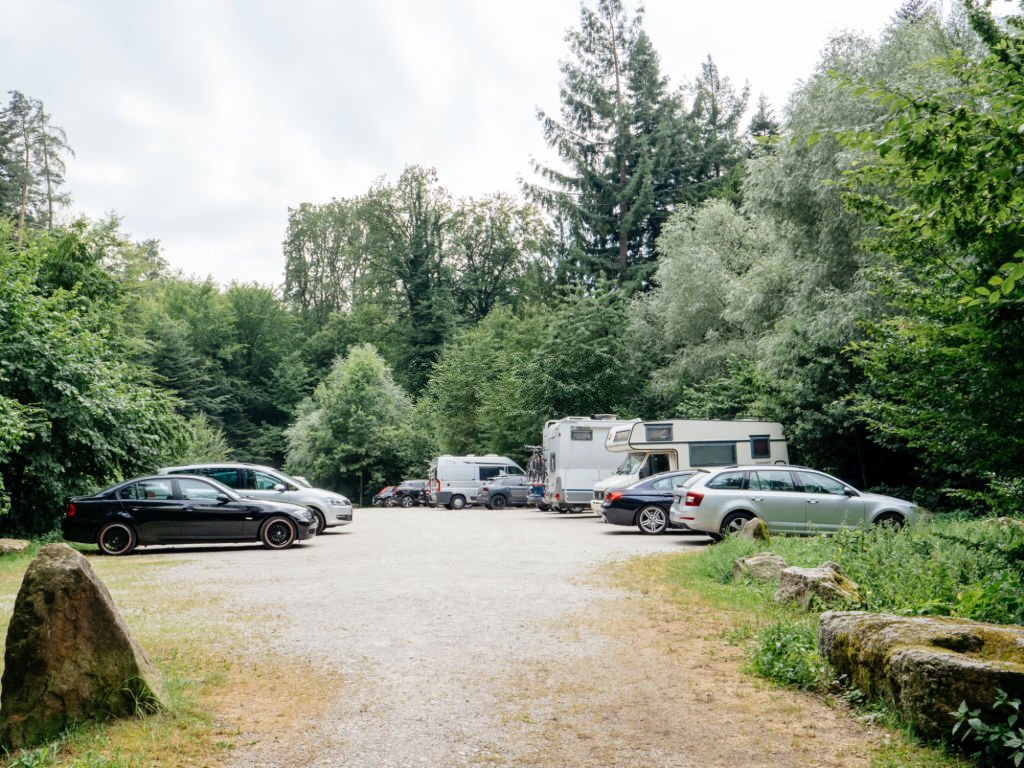
Email Marketing Strategies for Campgrounds
Among the proven marketing strategies for RV parks or campgrounds, email marketing is widely considered one of the most effective. From keeping in touch with previous guests to promoting rooms or services to future guests, there is a wide variety of benefits email marketing can bring to your campground.
One of the biggest advantages of email marketing is that it is budget-friendly. With an average ROI is $36 for every dollar spent, email marketing is much more cost-effective than other channels such as social media, search, or paid ads.
Here, we will take a closer look at those techniques and approaches that will help you develop and implement an effective email marketing strategy for your campground.
Why Email Marketing is Important for Campgrounds
Email marketing is a crucial tool for campgrounds looking to expand their reach and connect with potential guests. Using email campaigns, you can target a wider audience and provide valuable information about your offerings. This not only helps build brand awareness but also keeps the campground top of mind when potential visitors are planning their next trip.
In addition to reaching new customers, email marketing can help build brand loyalty and trust among existing clients. By sending out informative newsletters or promotions, you show that you care about staying engaged with your guests even beyond the booking process. This builds trust over time and encourages repeat business.
Finally, strategic use of email campaigns to promote seasonal deals or special events can significantly impact bookings and revenue. With personalized messaging based on customer preferences or past activity, these campaigns have the power to convert leads into paying guests while boosting overall occupancy rates during peak seasons.
Email Marketing Best Practices for Campgrounds
But how can you create an email marketing strategy that works for your campground? Below, we will move on to explore 5 of the best email marketing practices for campgrounds.
Segment Your Email List
Segmenting your email list means you will categorize your subscribers by demographics to create tailored marketing campaigns. This way, you can target specific groups of people with messages and promotions that speak directly to their needs.
Segmenting groups based on subscribers’ interests in camping activities will ensure they receive relevant content from your brand. For example, you can use this data to send targeted offers and blog articles about hiking trails or fishing spots nearby. This approach creates engagement as customers see offerings most pertinent to their preferences.
Another way to group subscribers is based on the frequency of their visits to your campground. This allows campgrounds to offer different incentives depending on customer loyalty levels. For example, frequent visitors may receive early access bookings while first-time guests might get discounts for future stays.
Personalize Your Messages
Personalization is essential for building brand engagement and constant contact with customers. It creates a connection between campgrounds and guests that drives action and repeat visits.
To begin with, make sure you address subscribers by their name and location. This shows that you value them as an individual, not just another name on the list. You can take it even further by including relevant details about their past stays at your campground, such as activities they enjoyed or amenities they used frequently.
Personalizing emails with subscribers’ preferences and history at your park increases customer satisfaction. Through the use of personalized email communications, readers feel much more valued and are more likely to develop an emotional bond with your brand.
Offer Compelling Content

Your email messages are an opportunity to add value to guests and help them get the most out of their trips. People love to learn more about the places they visit, so don’t hesitate to share any information that could enhance their experience.
Informative articles about nearby attractions and events, tips on local spots, or suggestions on activities such as outdoor cooking, hiking, or other camping-related topics will all be appreciated. Not only will this increase engagement with your brand, but it will also help people get the most out of their trip.
Another highly effective tactic is to offer exclusive discounts or promotions in your emails as a way of encouraging bookings. This way, you build loyalty amongst existing customers and also attract new ones.
Create Engaging Subject Lines
Attention-grabbing questions that address common camper concerns are a good example of effective subject lines. By posing a question in your subject line, you can pique the interest of potential guests and encourage them to open your email.
Another effective strategy when creating subject lines is to emphasize urgency with time-limited offers. Creating a sense of urgency can lead to increased engagement and conversions.
Use humor or puns related to camping themes that evoke curiosity. Humor is an effective way to grab attention in crowded inboxes while also establishing your brand’s personality. Of course, humor is a tool that has to be used wisely. Your aim is to create an emotional connection and help readers build positive associations with your brand.
Want to Grow Your Campground Business?
Book a FREE, personalized demo to learn about how RoverPass will save you time and help you earn more revenue
Finally, there are also a few technical tips that will help you create more effective subject lines:
- Keep it short: Aim for no more than 50 characters.
- Avoid spam triggers: Words like ‘free’ or excessive punctuation (!!!) may trigger spam filters.
- Personalize where possible: As we said before, personalization is a key element of email marketing. Using recipients’ names can increase open rates by up to 29%.
Craft Effective Calls to Action
To get readers to click through, let them know what they’ll gain when they do it. Language should be clear and concise, highlighting the benefits of engaging with your content or services. Using strong verbs like “get”, “explore” or “discover” can encourage visitors to take immediate action.
Make sure your “Book Now” buttons are easily visible within emails to maximize engagement. Use contrasting colors that stand out against the background and avoid cluttering the email with too many competing elements.
“Learn More” CTAs can direct traffic towards blog posts with useful information, building brand awareness and providing value for potential customers before they even book their stay at your campground.
By crafting effective calls-to-action throughout your email marketing campaigns, you will increase engagement and build stronger customer relationships, creating more opportunities for revenue generation in the process.
Test and Optimize

If you have already read something about email marketing, you probably recognize the concept of A/B testing. But what exactly is iA/B testing is basically a method of comparing two versions of an email to see which one performs better. You can test different elements of your email, such as the subject line, the sender name, the content, the images, the call to action, or the layout.
By measuring the open rate, click rate, conversion rate, or other metrics of each version, you can determine which one is more effective and use it for your email campaign. Using A/B testing, RV park owners can discover which messages resonate the most with their audience.
Email campaign analytics is an excellent tool to help you track which types of content receive more clicks. Through constant contact with subscribers, you can gather data on what types of content are performing well in their campaigns. Analyzing this data to refine your strategy to build brand awareness with your email messages.
Another element that you can experiment with to optimize conversions is the placement of CTAs. Placing CTAs strategically throughout the email body or at the end of specific sections could lead to better click-through rates (CTR) and higher conversion rates overall.
Driving Conversions: From Email Clicks to Website Bookings
Ultimately, the goal of your email marketing strategy is of course to drive bookings and grow your revenue. So you want readers to be engaged enough with your content so that they are eager to know more about what you have to offer.
But even if you achieve an excellent click-through-rate, all your email marketing strategy could be jeopardized if your website is not compelling, attractive, and engaging enough.
Research shows that 75% of users judge a business credibility based on how its website looks. In a cluttered digital landscape, creating a website that really stands out requires you go the extra mile to make sure it is designed to capture and retain visitors’ attention.
Through our experience at Roverpass, we have come to understand the key role a website plays in a campground’s success. This is why we created Premium Website Builder, a solution designed to help campgrounds create high-quality websites that act as 24/7 sales teams.
A stand-out website is the bridge that gets you from a powerful email marketing strategy to increased reservations and real revenue growth. Our team of expert writers, designers, and developers can make sure that your website’s increased traffic leads to more reservations and maximized revenue.
The Importance of a Carefully Executed Email Marketing Strategy for Campgrounds
Despite its proven effectiveness, email marketing should not be considered as if it were a magic formula. According to Mailchimp, the open rate in email marketing campaigns in the travel industry is 20,44%. Leveraging the email marketing strategies explored above, you can definitely aim higher than that.
As you experiment with these strategies, you will gradually figure out the tone and the type of messages that work better for your campground and your brand.
At Roverpass, we aim at providing campgrounds with the tools they need to enhance their competitiveness and maximize revenue in times in which our industry keeps growing rapidly. Keep reading our blog for more insights on the current challenges of the RV park industry.